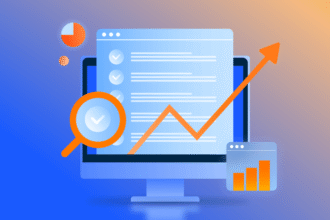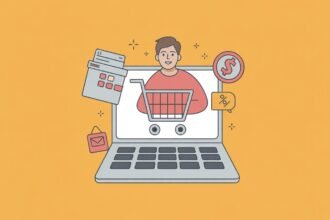One of the most effective ways to gain insights into consumer habits is through promotion tracking. This practice, which monitors and analyses the response to promotions, has become an indispensable tool for retailers looking to optimise their sales strategies.
In this blog post, we will explore the concept of promotion tracking and discuss its significant impact on both retail businesses and consumer behaviour. From improving promotional strategies to enhancing customer engagement, promotion tracking plays a pivotal role in shaping the retail landscape.
What is Promotion Tracking?
Promotion tracking refers to the process of monitoring and evaluating the performance of promotional activities, such as discounts, special offers, and limited-time sales. Retailers use various tools, including digital analytics platforms and customer loyalty programmes, to track how customers receive promotions, how they influence purchasing decisions, and whether they drive long-term loyalty.
Effective promotion tracking allows retailers to gather data on the success of individual promotions, gain insights into consumer preferences, and understand the broader impact of these campaigns on their brand.
How Promotion Tracking Affects Retailers
- Improving Promotional Effectiveness
One of the most immediate benefits of promotion tracking is the ability to measure the effectiveness of different promotional strategies. Retailers can easily identify which types of offers, discounts, or loyalty rewards resonate most with their audience. For instance, tracking how often a specific discount code is used can provide valuable information on its attractiveness to consumers.
This data enables retailers to refine their promotional strategies over time, ensuring that they invest in offers that yield the highest return on investment (ROI). By fine-tuning promotional campaigns based on past performance, retailers can maximise the impact of their marketing spend.
- Personalising Consumer Experiences
With the wealth of data collected from promotion tracking, retailers can begin to offer a more personalised shopping experience. By understanding purchasing patterns, retailers can target consumers with tailored promotions that are relevant to their interests and buying habits.
For example, if a customer frequently purchases specific brands or product categories, retailers can send them personalised discounts or special offers related to those items. This not only increases the chances of repeat sales but also strengthens customer loyalty by showing that the retailer understands and values the individual shopper’s preferences.
- Optimising Inventory Management
Promotion tracking also has a direct impact on inventory management. By analysing the sales data generated during a promotion, retailers can determine which products are in high demand and which are not performing as well. This insight enables more accurate forecasting and inventory management, thereby reducing the risk of overstocking or understocking popular items.
With this real-time data, retailers can ensure that their stores (both physical and online) are consistently stocked with products that customers are most likely to purchase, ultimately leading to better sales performance.
- Enhancing Customer Loyalty
Customer loyalty programmes often go hand in hand with promotion tracking. By offering incentives for repeat purchases or engagement with promotions, retailers can encourage long-term loyalty. Promotion tracking helps retailers monitor the effectiveness of their loyalty programs in keeping customers engaged and returning.
For example, if a loyalty programme rewards points for purchases made during promotional events, tracking how often customers redeem their points during specific campaigns can highlight the most successful aspects of the programme. This data helps retailers refine their loyalty strategies to increase customer retention rates.
The Impact of Promotion Tracking on Consumer Behaviour
While promotion tracking primarily benefits retailers, it also has a significant impact on consumer behaviour. Promotions, especially when tracked and tailored to the individual, influence how and when consumers make purchasing decisions.
- Heightened Consumer Expectations
Consumers today are increasingly savvy when it comes to promotions. Thanks to the prevalence of online shopping and the ease of comparing prices, shoppers have become accustomed to discounts, special offers, and time-limited deals. Promotion tracking enables retailers to meet these expectations by delivering relevant and timely offers to their customers.
Consumers are more likely to engage with promotions that are personalised and meet their needs. As a result, they are more likely to make a purchase during a promotion, particularly when they perceive the offer as exclusive or specially tailored to their needs.
- Influencing Buying Decisions
Promotions have a direct impact on consumer buying behaviour. When consumers are presented with discounts or time-sensitive offers, they are more likely to make impulse purchases or buy more than they initially intended. Promotion tracking enables retailers to identify which promotions generate the most significant consumer responses, allowing them to design more effective offers in the future.
For example, limited-time offers or “buy one, get one free” deals often trigger a sense of urgency, motivating consumers to take action sooner rather than later. Through tracking how these promotions influence purchasing behaviour, retailers can create campaigns that drive higher conversion rates.
- Shaping Brand Perception
The frequency and nature of promotions can also influence how consumers perceive a brand. Regular promotions can make a brand seem more accessible, while infrequent or exclusive offers may position a brand as more premium or high-end. By tracking how different types of promotions affect customer perception, retailers can shape the way their brand is viewed in the marketplace.
For instance, a retailer offering consistent discounts may appeal to bargain-conscious consumers but could risk devaluing its brand. On the other hand, a brand offering occasional, high-value promotions may create a sense of exclusivity and desirability.
- Building Trust and Transparency
Promotion tracking also plays a role in building trust between retailers and consumers. With more consumers becoming concerned about pricing transparency and fair practices, retailers who consistently track and analyse their promotions can demonstrate that they are offering fair, well-thought-out deals. This transparency can help build trust with customers, as they will feel more confident that they are receiving genuine value.
Promotion tracking has become an essential tool for retailers seeking to optimise their promotional efforts and gain a deeper understanding of consumer behaviour. By gathering valuable data on how consumers respond to various offers, retailers can refine their promotional strategies, personalise customer experiences, and optimise inventory management.
For consumers, well-executed promotions provide an opportunity to engage with brands in a more meaningful way, whether it’s through personalised offers, time-sensitive deals, or exclusive discounts. As the retail landscape continues to evolve, promotion tracking will remain a key driver in shaping both retailer success and consumer behaviour.
Ultimately, when done correctly, promotion tracking not only boosts sales but also fosters a stronger, more loyal connection between retailers and their customers.

















